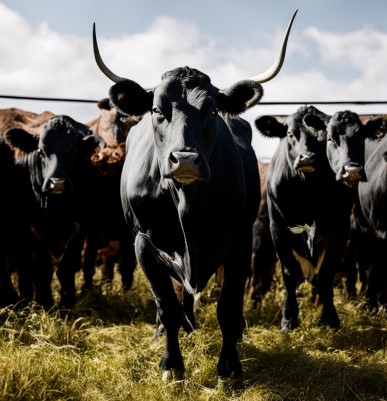In Brazil, beef exports are growing faster than domestic production.

After three months of growth, imported beef in cold storage in CHINA resumed the downward trend that prevailed in the second half of 2024 , falling nearly 4% over the past month and 20% compared to April last year. Meanwhile, wholesale prices showed signs of recovery last month, reaching over $8.50 per kilogram, after hovering around $8 in February and March. However, according to OIG+X, prices rose early in April but then failed to maintain the recovery due to more cautious buyers.
MeanwhileThe U.S. Secretary of Agriculture has again suspended cattle imports from Mexico. The news was released last week in response to concerns about the spread of a common beef virus.CWS flies . CWS was recently detected on remote cattle-movement-restricted farms, approximately 1,100 km from the U.S. border. The United States and Mexico continue to work together to intercept and eradicate CWS in Mexico. Therefore, this suspension will be reviewed monthly and will remain in effect until significant containment is achieved. The suspension threatens to increase U.S. beef prices by further restricting cattle supplies, which are already at their lowest levels in decades.
Beef production in Brazil continues to grow, but external demand is growing even more rapidly. IBGE data show that in the first quarter of this year, production increased by 2.73% compared to the same period in 2024, while exports grew by almost 12% over the same period. Prices for both cattle and MEAT were already pointing to this scenario, according to Cepea surveys. The CEPEA/ESALQ Live Cattle Indicator (São Paulo State) was 22% higher in real terms (adjusted for IGP-DI deflation) than in the first quarter of 2024. Meanwhile, the wholesale price of beef on the hook increased by 23.8% over the same period.
Paraguay is entering the kosher slaughter season for meat exports to Israel. Seven meat processing plants will be assigned technicians who will be responsible for slaughtering according to specific market criteria. The season begins now and runs until October, typically resuming in November after a break. Prices are approximately 9% higher than last year, depending on individual plant negotiations. Kosher slaughter is not only a religious ritual but also a practice that adds value to protein and opens the door to high-income markets. Volumes are expected to be similar to previous years in 2025, and while they may not increase significantly in quantity, prices may ultimately become slightly more attractive this season. At the end of April, Paraguay exported 10,695 tons of beef worth approximately $65.9 million.
Read together with it:
- Парагвай: Экспорт субпродуктов является растущей отраслью и уже достиг 95,4 млн долларов СШАЭкспорт говяжьих субпродуктов в этом году значительно вырос. К концу августа выручка составила 95,4 млн долларов США по сравнению с 54,6 млн долларов США на тот же конец прошлого года. По данным SENACSA, в конце августа этого года было экспортировано 51 миллион килограммов мяса по сравнению с 33,7 миллиона килограммов на конец того же месяца прошлого года. Экспорт субпродуктов увеличился на 51,3%....
- Новые горизонты сотрудничества: Россия и Аргентина обсуждают совместный доступ на рынки продукции животного происхожденияОдной из ключевых тем конференции стал контроль за производством ветеринарных препаратов в Аргентине. Аргентинская сторона представила свою систему контроля, включающую Управление ветеринарных продуктов и Управление лабораторий животных. Эти организации обеспечивают высокие стандарты безопасности, так как каждая производственная единица подвергается проверкам каждые 3-5 лет и зарегистрирована в ин...
- Indilight held a culinary masterclass with Silvena Rowe, promoting turkey as a healthy food.Silvena Rowe demonstrated original turkey cooking techniques, emphasizing its nutritional value. Participants prepared crispy turkey schnitzel with an almond-herb crust and turkey with turmeric and lime. The masterclass also emphasized a scientific approach to nutrition and promoted turkey as an ideal food for a healthy lifestyle. During the event, guests received unique gifts from the Louis Quart...
- Министерство сельского хозяйства США представило план по снижению цен на говядинуПоголовье скота в стране находится на самом низком уровне за последние 75 лет, в то время как спрос на говядину вырос на 9% за последнее десятилетие. Поскольку увеличение поголовья скота в стране требует времени, Министерство сельского хозяйства США (USDA) уже сейчас инвестирует средства, чтобы сделать эти рынки менее волатильными для скотоводов в долгосрочной перспективе и более доступными для по...


